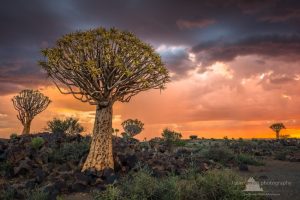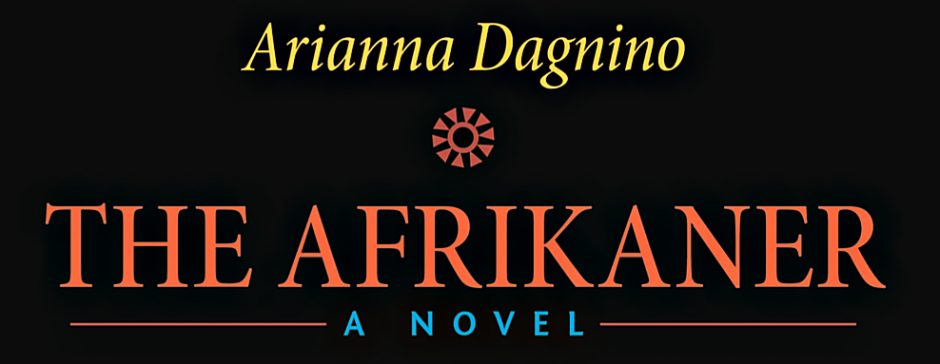 Thanks to Chris Rice Cooper for her beautiful interview on The Afrikaner, in which much is revealed about the emotional elements involved in a writer’s creative process.
Thanks to Chris Rice Cooper for her beautiful interview on The Afrikaner, in which much is revealed about the emotional elements involved in a writer’s creative process.
Find it here an abridged version.
Name of fiction work? And were there other names you considered that you would like to share with us? “The Afrikaner”. Initially, it was simply called “Zoe,” like the name of the main female character. Later on, I thought of it as “Fossils” (Zoe is a paleontologist): I found it poetic.
Has this been published? And it is totally fine if the answer is no. If yes, what publisher and what publication date? It was published by Guernica Editions (Toronto) in April 2019.
What is the date you began writing this piece of fiction and the date when you completely finished the piece of fiction? I started writing this book in the year 2000, when I was still in South Africa working as an international reporter for the Italian press. I kept writing it and finished it in Australia, where my husband and I moved after our two children were born. I then rewrote it when we moved to Canada and after I completed my PhD in Comparative Literature.
Where did you do most of your writing for this fiction work? And please describe in detail. I wrote most of it on a small desk in my home studio but also at several public libraries and coffee shops, both in Adelaide and Vancouver.
What were your writing habits while writing this work- did you drink something as you wrote, listen to music, write in pen and paper, directly on laptop; specific time of day? I like taking initial notes with pen and paper, wherever I am. But for the real writing I need to be in front of my laptop. I love writing early in the morning, from 5.00 am onwards. I like having coffee or tea by my side. No music, though – too distracting.
What is the summary of this specific fiction work?Zoe Du Plessis’s story unfolds against the backdrop of 1996 South Africa, caught in the turmoil of the transition from the Apartheid regime to the first democratically elected black government. A paleoanthropologist at Witwatersrand University in Johannesburg, her world collapses when her lover and colleague, Dario Oldani, is killed during a fatal carjacking.
Clinging to her late companion’s memory, Zoe sets off to the merciless Kalahari Desert to continue his fieldwork. It’s the beginning of an inner journey during which she gets to come to terms with a growing sense of guilt for having been raised as a privileged white Afrikaner while also confronting a secret that has hung over her family for generations. During a brief visit back home, Zoe meets an unlikely lover in Kurt, a legendary South African writer with a troubled past. The conclusion spirals the reader into a new perspective, where atonement seems to be inextricably linked to an act of creative imagination.
Can you give the reader just enough information for them to understand what is going on in the excerpt? The excerpt is taken from Chapter 1 of the book (right after the “Prologue”), when Zoe, whose lover has just been killed in a car-hijacking, leaves Johannesburg in grief and crosses the hot plains of the Karoo to reach the family wine estate in the Cape. There in the Karoo, she meets again Koma the Bushman shaman, who will be a key player in her journey of atonement and self-discovery.
Why is this excerpt so emotional for you as a writer to write? And can you describe your own emotional experience of writing this specific excerpt? In one of my trips to Namibia as a reporter, I had a chance to meet with a Bushman shaman. Regular communication between us was rather complicated: I would ask him a question in English and the ranger who accompanied me there would translate it into Afrikaans, the language that the shaman had learned during his time as a tracker in the South African Defence Forces. The answer arrived through the same laborious path. Thus, most of the time we shared the silence of the desert. Soon I realized how much the old shaman could “tell me” with his simple gestures and facial expressions. In this passage I tried to recreate that emotional space, that sense of being suspended between reality and some other plane of existence and meaning.
Were there any deletions from this excerpt that you can share with us? And can you please include a photo of your marked up rough drafts of this excerpt. I rewrote these pages many times, adding, deleting or changing things, reworking the wording of the dialogues.
Other works you have published? In English, I have published a creative nonfiction which constitutes the first part of my book Transcultural Writers and Novels in the Age of Global Mobility (Purdue University Press, West Lafayette, 2015), and Jesus Christ Cyberstar, freely inspired by the 1970 Broadway’s first rock opera Jesus Christ Superstar: in it, I compare certain values of the digital age (at least in its early period) with those of the Christianity of the origins.
Anything you would like to add? Many early readers told me that being highly visual and with a captivating plotline, The Afrikanercould become a great movie. I have now started working on a film script together with Ernest Mathijs, my colleague and Professor of Film Studies at UBC. I would like to find a way to involve my readers in this process of transforming a novel into a script. For example, since I will have to cut a lot to reduce a 280-page story into a 120-page script, I would be curious to see which characters and scenes they would keep and which ones they would delete and then compare the results with what Ernest and I have come up with. I am also working on an audiobook version of The Afrikaner with Los Angeles-based, South African actor Dennis Kleinman (www.aworldvoice.com).
If The Afrikaner were made into a film which actors would you choose for the main roles?
If The Afrikaner were made into a film I’d choose Charlize Theron (she is South African) or, alternatively, Jessica Chastain (she is red-headed) as Zoe Du Plessis. I’d see actor Craig Greer in the role of Zoe’s brother André du Plessis and Neil Sandilands portraying Kurt van der Merwe.
This interview was originally published on Chris Rice Cooper’s blog. You can access the full interview and the related photos here.

 https://blogs.ubc.ca/afrikaner/follow
https://blogs.ubc.ca/afrikaner/follow 
